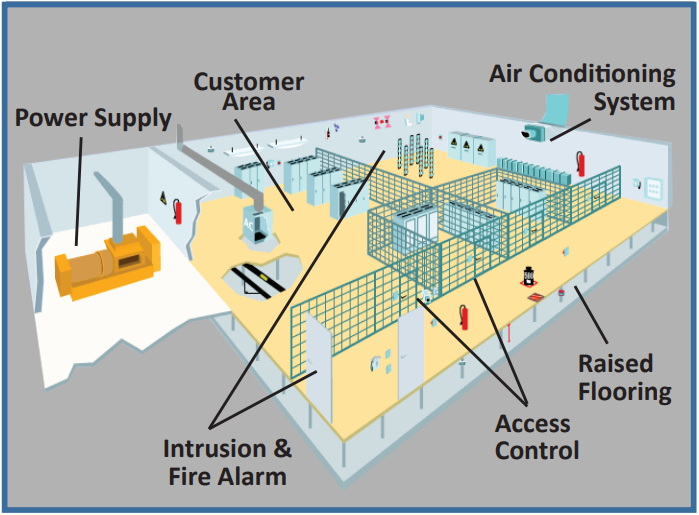What do Data Centers do to host your Dedicated Servers or VPN Servers

In the digital era, data centers play a pivotal role in ensuring that our online services remain accessible, secure, and efficient. As the backbone of the internet, these facilities are responsible for hosting a wide array of critical infrastructure, including dedicated servers and VPN servers. Understanding how data centers operate to support these services provides insight into the complexity and sophistication of modern Internet architecture.
What Are Data Centers?
Data centers are specialized facilities that house computer systems and associated components, such as telecommunications and storage systems. They are designed to provide a secure, controlled environment for the equipment necessary for processing, storing, and disseminating data and applications. Due to their importance, these centers are equipped with redundant or backup power supplies, redundant data communications connections, environmental controls (e.g., air conditioning, fire suppression), and various security devices.
Hosting Dedicated Servers
A dedicated server is a single computer in a network reserved for serving the needs of the network. For example, a website that receives a considerable amount of traffic may require a dedicated server to manage its traffic efficiently. Data centers host these servers to offer businesses the processing power, storage, and bandwidth they require without the need for companies to maintain and secure these servers on their premises.

Here's how Data Centers manage this:
Physical Security: Data centers implement stringent security measures, including biometric access controls, surveillance cameras, and security personnel, to protect hardware against unauthorized access or tampering.
Power Redundancy: To ensure that servers remain online at all times, data centers use backup generators and uninterruptible power supply (UPS) systems that kick in during power outages.
Climate Control: Servers generate a lot of heat, and excessive heat can impair their performance and lifespan. Data centers use advanced cooling systems to maintain optimal temperatures.
Network Connectivity: With multiple high-speed internet connections and arrangements with major internet service providers (ISPs), data centers ensure that hosted servers have high availability and low latency connections to the internet.
Hosting VPN Servers
VPN servers are crucial for privacy, security, and remote access. By hosting VPN servers in data centers, service providers can offer users a reliable and secure way to connect to the internet.

The role of data centers in hosting VPN servers includes:
Encryption and Security: Data centers provide a secure environment to host VPN servers, which encrypt internet traffic, ensuring data security and user privacy.
Scalability: As the demand for VPN services grows, data centers can quickly scale up resources, providing additional bandwidth and processing power to accommodate more users.
Global Reach: By hosting VPN servers in data centers around the world, providers can offer users a wide choice of server locations. This global presence helps reduce latency and improve connection speeds for users no matter where they are.
The Image of Modern Connectivity
The illustration provided captures the essence of a data center's role in hosting dedicated and VPN servers. Rows of servers, network connections symbolizing the internet, and visual elements of security and speed all highlight the critical functions these facilities play in our interconnected world.
Final Thoughts:
Data centers are the unsung heroes of the internet age, providing the infrastructure necessary for our digital lives to flourish. By hosting dedicated VPN servers, these facilities ensure that businesses and individuals alike can access reliable, secure, and high-speed internet services. As our reliance on online services continues to grow, the role of data centers in supporting this digital ecosystem will only become more critical.




